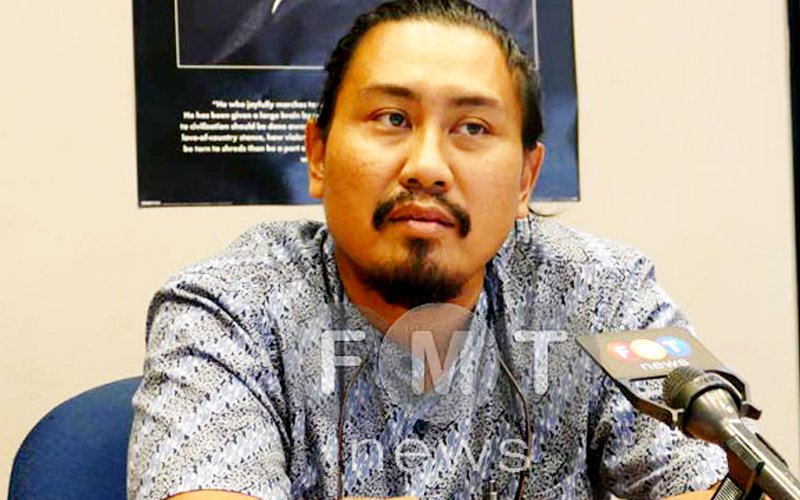Author tells how to end ‘obsession’ with identity politics

“The wrong understanding of Islam, coupled with nationalist or racist sentiments, make many Muslims confused. Some Muslims insist that non-Muslims should not be richer than Muslims. The Prophet never taught this.”
(FMT) – Prominent author Faisal Tehrani has mooted education as a way to combat the apparent obsession of many Malays with identity politics stemming from issues of race and religion.
Faisal, whose revisionist writings on Malay history and culture have often clashed with views of mainstream scholars, added that identity politics was a growing trend not only in Malaysia, but in countries like Israel, India, Japan, the US and those in the Balkans.
“In Malaysia, in my view, it stems from negative feudalism, Malay supremacy and rigidity in Islamic teachings,” he told FMT.
He was responding to think tank Iman Research which said identity politics was so deeply entrenched in Malaysia that race and religion was a bigger priority to many Malays than concerns over bread-and-butter issues.
Iman Research founding member and director Dina Zaman said concerns over race and religion could stem from years of indoctrination and identity politics which, if left unchecked, could lead to mistrust among the communities.
Faisal, a research fellow at the Institute of the Malay World and Civilization at Universiti Kebangsaan Malaysia, said a change in mindset could be achieved through education and the rewriting of history textbooks.

Former Umno MP Tawfik Ismail meanwhile urged Malays to conduct “some soul searching” on whether it was beneficial to continue subscribing to identity politics.
“The real world is bigger than Malaysia,” he said. “If we want to remain relevant in this world, we have to think beyond race and religion.
“There is little merit involved in identity politics. If you keep subscribing to it, how do you get the best leaders who can give you the best? You will only be selecting leaders from a pool of people fixated on race and religion.”
He told FMT that identity politics in Malaysia had also been amplified by economic inequality, hence the efforts to reduce the wealth gap between the Malays and non-Malays after the May 13 riots.
“Umno projected itself as the only party which could help the Malays economically, and when PAS said the economy wasn’t as important as religion, Umno tried to show that it could challenge PAS’ credentials.”
The former Sungai Benut MP said this had put a greater emphasis on race and religion, adding however that it was not restricted to the previous ruling coalition as the likes of PPBM and Amanah also fought on a platform of identity politics.
Universiti Malaya economist Mohd Nazari Ismail said identity politics was not a “big deal” as long as Muslims had a correct understanding of Islam.
“What we have now among many Malay Muslims is misguided nationalism, hence the negative perceptions towards other races over economic issues.”
Nazari said the right understanding of the Islamic worldview should not result in unnecessary and damaging conflict with other communities.
“For example, Muslims are not supposed to be envious of non-Muslims’ wealth if the non-Muslims happen to be richer because wealth is not the most important thing in Islam,” he said, adding that it was more important to be fair to other communities.
“The wrong understanding of Islam, coupled with nationalist or racist sentiments, make many Muslims confused. Some Muslims insist that non-Muslims should not be richer than Muslims. The Prophet never taught this.”

